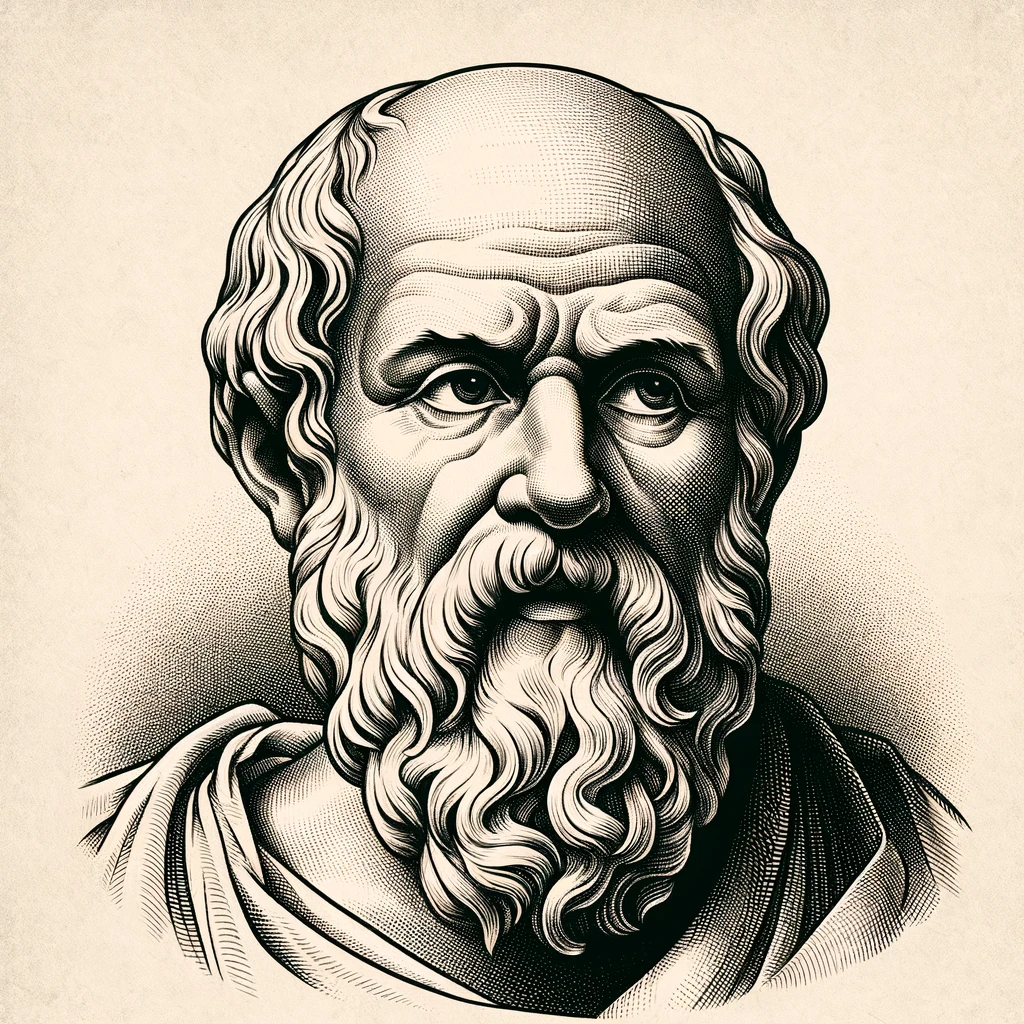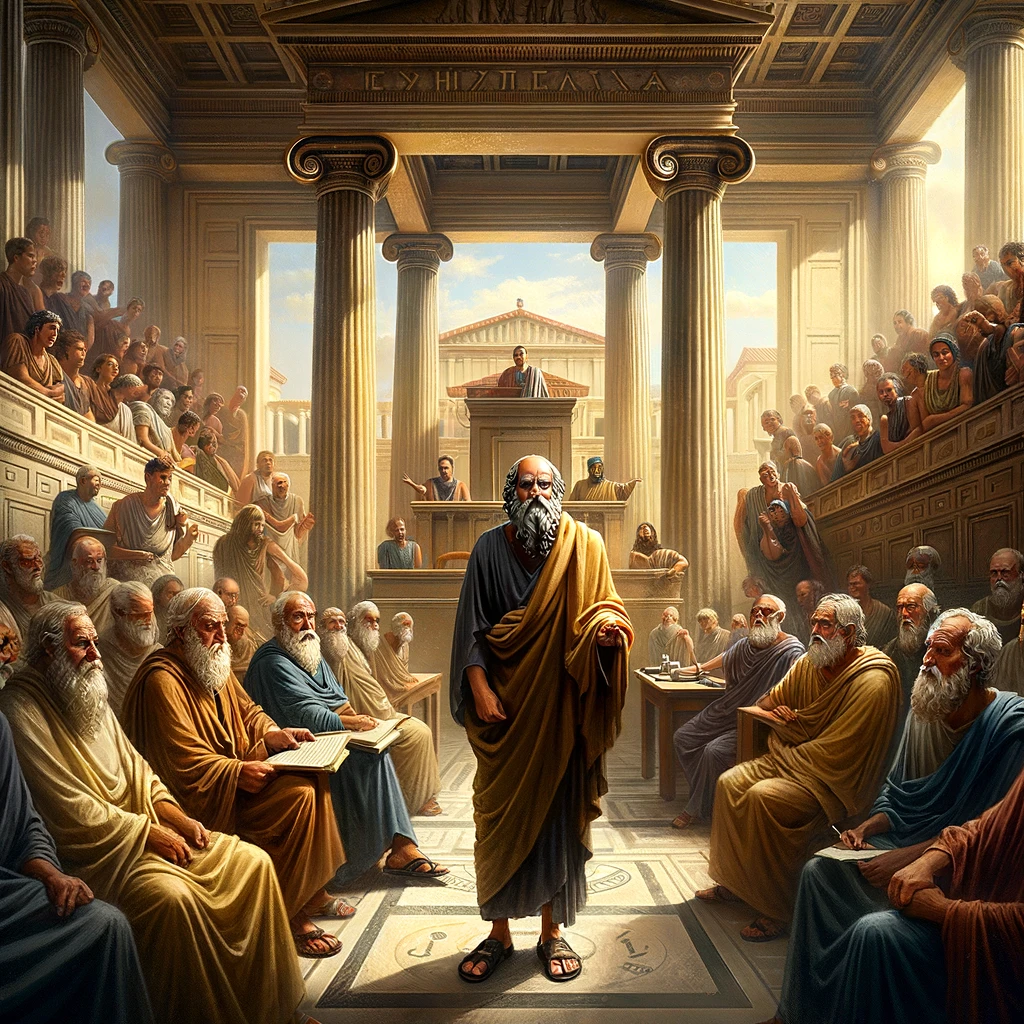The trial of Socrates stands as one of the most infamous judicial proceedings in the annals of history, marking a pivotal moment in the intersection of philosophy, politics, and ethics. In 399 BC, Athens turned against its most enigmatic philosopher, leading to a series of events that would forever immortalize Socrates as a martyr for free thought and intellectual integrity. This blog post delves into the circumstances leading to Socrates’ trial, the accusations laid against him, and the profound impact of his defense on philosophical discourse.
The Prelude to the Trial:
The political climate of Athens in the late 5th century BC was tumultuous, marked by the aftermath of the Peloponnesian War, democratic instability, and social unrest. Socrates, known for his public questioning of prominent Athenians, found himself amidst a society increasingly suspicious of his influence on the youth and critical of his questioning of traditional values and the Athenian democracy.
The Accusations Against Socrates:
Socrates faced three main accusations: corrupting the youth of Athens, impiety against the pantheon of Athens, and introducing new deities. These charges were deeply intertwined with the broader political, social, and religious tensions of the time. Socrates’ relentless questioning and his association with figures from both sides of Athens’ recent political strife provided a convenient pretext for his enemies to target him.
The Trial:
The trial of Socrates was a public spectacle, with Socrates defending himself against his accusers before a jury of 500 Athenian citizens. Despite the serious nature of the accusations, Socrates employed his characteristic wit and irony, engaging in a philosophical discourse on the nature of virtue, justice, and the good life. He challenged the basis of the accusations and asserted the importance of questioning and intellectual freedom.
Socrates’ Defense and Condemnation:
Socrates’ defense, as recorded by Plato in the “Apology,” was a masterclass in Stoic composure and Socratic irony. He argued that his quest for wisdom and moral inquiry was a service to the city, inspired by a divine mission. However, his unyielding defense and refusal to pander to the jury’s expectations led to his conviction. Offered a chance to propose an alternative punishment, Socrates famously suggested that he should be rewarded for his service to the state. The jury was not amused and sentenced him to death by consuming hemlock.
The trial and subsequent execution of Socrates is a testament to the dangers of political scapegoating and the suppression of free thought. His martyrdom laid the foundational stones for Western philosophical thought, emphasizing the pursuit of truth, the importance of ethical living, and the value of the examined life. Socrates’ legacy challenges us to question, to seek wisdom, and to live with integrity, regardless of the societal pressures to conform.









